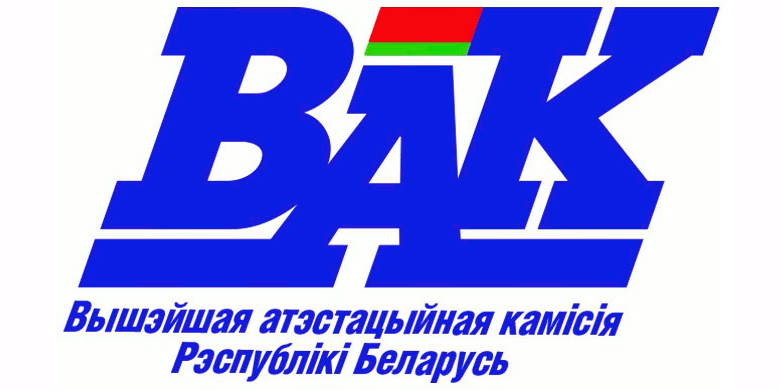Challenges for Social Responsibility in Activities for Economic Development.
Аннотация
Статья посвящена проблемам, стоящим перед государством и хозяйствующими субъектами микроуровня, в аспекте их роли и ответственности за благополучие нынешнего и будущих поколений. В статье приведены ошибки, преднамеренные злоупотребления и даже преступления, с которыми сталкиваются экономические субъекты. Авторы также раскрывают и положительные практики экономических организаций, которые обсуждались, в частности, на Всемирном Бизнес Совете по устойчивому развитию. Одной из фундаментальных проблем на макроуровне, связанными с ответственностью государства, является ответственное использование государственного долга. Его нерациональное и чрезмерное использование может привести к негативным экономическим и социальным последствиям, которые также рассматриваются в статье. Ключевые слова: корпоративная социальная ответственность, корпоративное управление, этика бизнеса. = This article treats of the challenges facing the state and the micro-entities of economic life in the category of their role and responsibility for the well-being of present and future generations. This idealistic formulation is a point of reference for the presented discourse. A number of mistakes, and deliberate abuses, and even crimes encountered by the listed entities are enumerated. However, the legitimacy and the essence of competitiveness is not challenged, but only the responsibility of entities for the ethical side of its regulations are indicated, thereby its functioning per se. The article also shows good practices of economic organizations (companies) in this regard, which are promoted, among others, by the World Business Council for Sustainable Development and which favour ethical economic growth. Real actions, not their marking often referred to as the Greenwash activity, are considered appropriate. At the macro level, one of the fundamental problems concerning the liability of the state is emphasized, the responsible use of public debt. Its irrational use and excessive levels lead to negative economic and social consequences, which is also considered in the paper. Keywords: Corporate Social Responsibility, corporate governance, business ethics.Библиографические ссылки
Action brought by the Ecological Association Eco-Unia against ENEA S.A., Resolution of 8 July 2010, [online] http://www.radareklamy.pl/ostatnie-uchwaly-ker-3/85-2010/441-html access on 11.11.2013.
Adamczyk, J. Społeczna odpowiedzialność przedsiębiorstw. Teoria i praktyka / J. Adamczyk // Polskie Wydawnictwo Ekonomiczne – Warszawa 2009, p. 15.
BCSD Hungary – Interpreting corporate sustainability recommendations for business leaders, [on-line]
http://www.wbcsd.org/Pages/EDocument/EDocumentDetails.aspx?ID=15286&NoSearchContextKey=true 11.11.2013
.
Best Practice in Corporate Social Responsibility, PR Newswire, New York, 15 Nov 2011.
Czaja, M. Greenwash w Polsce, czyli „zielone kłamstwo” w reklamie, [on-line] 13.06.2011
http://www.wirtualnemedia.pl/artykul/greenwash-w-polsce-czyli-zielone-klamstwo-w-reklamie access on 11.11.2013.
Deptuła, T. Szefowie Enronu za kratkami, Dziennik / T. Deptuła – 27-28.05.2006. http://www.greenwashingindex.com
Eurostat and International Monetary Fund, General Government Gross Debt as Percent of GDP by Country, World Economic Outlook Database.
Odpowiedzialny biznes w Polsce. Dobre praktyki. Raport 2011, Forum odpowiedzialnego biznesu: Warszawa 2012.
Real GDP growth rate Eurostat 2013, Eurostat – Data Explorer Report for Selected Country Groups and Subjects
Reinhard, C.M., Rogoff K.S., Growth in a Time of Debt / C.M. Reinhard, K.S. Rogoff // NBER, Working Paper – No. 15639. – 2010; National Bureau of Economic Research, Cambridge MA 02138, January 2010
Spector, M. & McGinty, T. 2012, The CEO Bankruptcy Bonus --- Firms Sidestep Rule That Limits Rewards for Executives, Wall Street Journal, Eastern edition, New York, N.Y. January 27, 2012.
Sułek, M. J. Świniarski, Etyka jako filozofia dobrego działania zawodowego, Dom Wyd / M. J. Sułek. – Bellona: Warszawa 2001. – p. 208.
Wiśniewska M. Budget deficit in Eastern European Countries and its implications for Economic Growth in: United Europe Widening Borders, Monograph / M .Wiśniewska, J. Wiśniewski // Dnipropetrovs’k, NMU 2012. – pp. 40 – 45.
Wiśniewska, M.A. Inwestowanie w nieruchomości na rynkach międzynarodowych / M.A. Wiśniewska // Wydawnictwo Naukowe PWN, Warszawa 2011. – p. 177 et seq.
Wiśniewski J. Polimorfizm zasady racjonalnego gospodarowania / J. Wiśniewski . – UMK, Toruń 1996. – p. 14 et seq.
Загрузки
Как цитировать
Выпуск
Раздел
Лицензия
Автор предоставляет Редакции журнала на весь срок действия исключительных прав на Произведение следующие права:
1. право на воспроизведение Произведения (опубликование, обнародование, дублирование, тиражирование или иное размножение Произведения) без ограничения тиража экземпляров. При этом каждый экземпляр Произведения должен содержать имя автора Произведения;
2. право на распространение Произведения любым способом;
3. право на включение в составное произведение;
4. право на доведение до всеобщего сведения;
5. на использование метаданных (название, имя автора (правообладателя), аннотации, библиографические материалы и пр.) Произведений путем распространения и доведения до всеобщего сведения, обработки и систематизации, а также включения в различные базы данных и информационные системы.
6. право переуступить на договорных условиях частично или полностью полученные по настоящему договору права третьим лицам без выплаты Автору вознаграждения.
Автор передает права Редакция журналау по настоящему Договору на основе неисключительной лицензии.
Редакция журнала обязуется соблюдать предусмотренные действующим законодательством авторские права, права Автора, а также осуществлять их защиту и принимать все возможные меры для предупреждения нарушения авторских прав третьими лицами.
Территория, на которой допускается использование прав на Произведения, не ограничена.
Автор также предоставляет Редакция журналау право хранения и обработки следующих своих персональных данных без ограничения по сроку:
• фамилия, имя, отчество;
• дата рождения;
• сведения об образовании;
• сведения о месте работы и занимаемой должности;
• сведения о наличии опубликованных произведений литературы, науки и искусства.
Персональные данные предоставляются для их хранения и обработки в различных базах данных и информационных системах, включения их в аналитические и статистические отчетности, создания обоснованных взаимосвязей объектов произведений науки, литературы и искусства с персональными данными и т.п.
Редакция журнала имеет право передать указанные данные для обработки и хранения третьим лицам при условии уведомления о таком факте с предоставлением сведений о третьем лице (наименование и адрес) Автору.
Отзыв согласия на хранение и обработку персональных данных производится Автором путем направления соответствующего письменного уведомления Редакции журнала.
Автор и Редакция журнала несут в соответствии с действующим законодательством Республики Беларусь имущественную и иную юридическую ответственность за неисполнение или ненадлежащее исполнение своих обязательств.
Сторона, ненадлежащим образом исполнившая или не исполнившая свои обязанности, обязана возместить убытки, причиненные другой Стороне, включая упущенную выгоду.
Все споры и разногласия Сторон, вытекающие из условий настоящего Договора, подлежат урегулированию путем переговоров, а в случае их безрезультатности, указанные споры подлежат разрешению в суде в соответствии с действующим законодательством Республики Беларусь.
Расторжение настоящего соглашения возможно в любое время по обоюдному согласию Сторон, с обязательным подписанием Сторонами соответствующего соглашения об этом.
Расторжение настоящего соглашения в одностороннем порядке возможно в случаях, предусмотренных действующим законодательством, либо по решению суда.
Во всем, что не предусмотрено настоящим соглашением, Стороны руководствуются нормами действующего законодательства Республики Беларусь.















.gif)
